Industrial zones Devoid of true management?
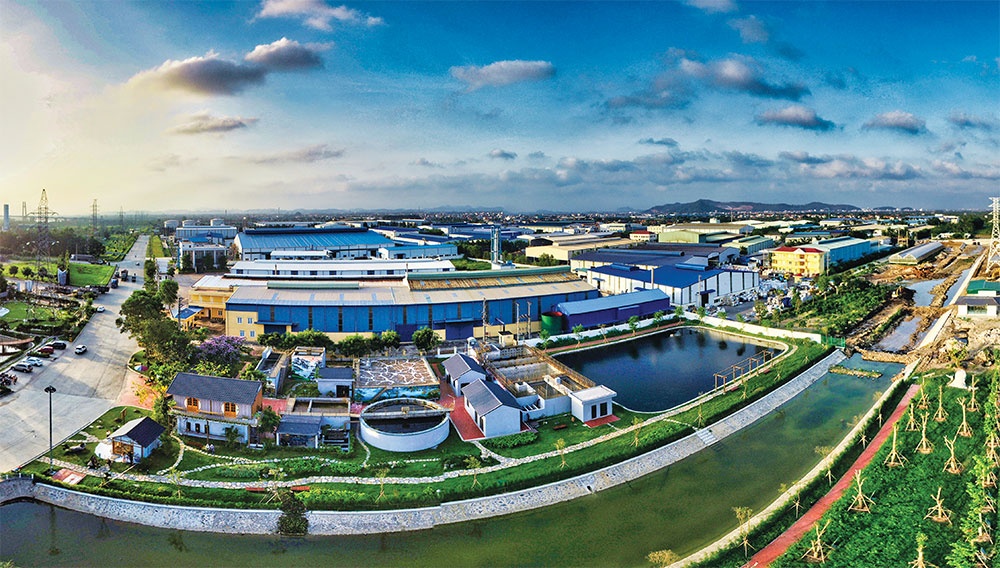 |
“Industrial real estate is an area with great promise, and a growing number of investors are entering this arena. However, we have a severe lack of units specialised in the administration and operation of industrial zones (IZs),” said Nguyen Dinh Nam, founder and general director of IPA Vietnam Corporation.
According to Nam, although hotels, offices, and condos have numerous local and foreign expert management and operation units, IZs lack this capability.
“Senior investors who self-manage and run IZs satisfy the qualifications. However, with the fast growth of the business and the emergence of an increasing number of new players, the demand for competent management and operation is enormous and essential,” Nam said. “Therefore, pioneering firms in the administration and operation of IZs will gain substantially in the future and contribute positively to the overall growth of the market.”
Trang Bui, country head of Cushman & Wakefield Vietnam, attributes the lack of experienced IZs operators to the market’s history, rapid expansion, and diverse demand. “The majority of IZs in Vietnam were founded by the government, delegated to local authorities for administration, and subsequently transferred to the local management boards. The market did not require dedicated management and operation units because of this historical factor,” Bui said.
In recent years, Vietnam has drawn a large number of international investors. Additionally, the domestic manufacturing sector has flourished, and more IZs have been formed to suit the production and business demands of companies and investors. In the process of building IZs in particular, the private sector’s shadow has becomes increasingly obvious.
In addition, new types of IZs, such as industrial cities and service zones, are gaining popularity with a variety of goods such as prefabricated factories, high-rise factories, and cold storage that are entirely distinct from those for rental land. They now include a more significant number of aspects such as services and housing for employees and specialists, which generates new needs and necessitates a skilled management and operations staff.
Real estate expert Vu Cong Vu stressed that the professional operator must assist tenants in several stages before, during, and after the investment, including a survey, human resource search, business connection, and investment promotion, to increase the occupancy rate. “Numerous investors such as VSIP, DEEP C Industrial Zones, and Thang Long Investment are likewise striving in this direction,” Vu said.
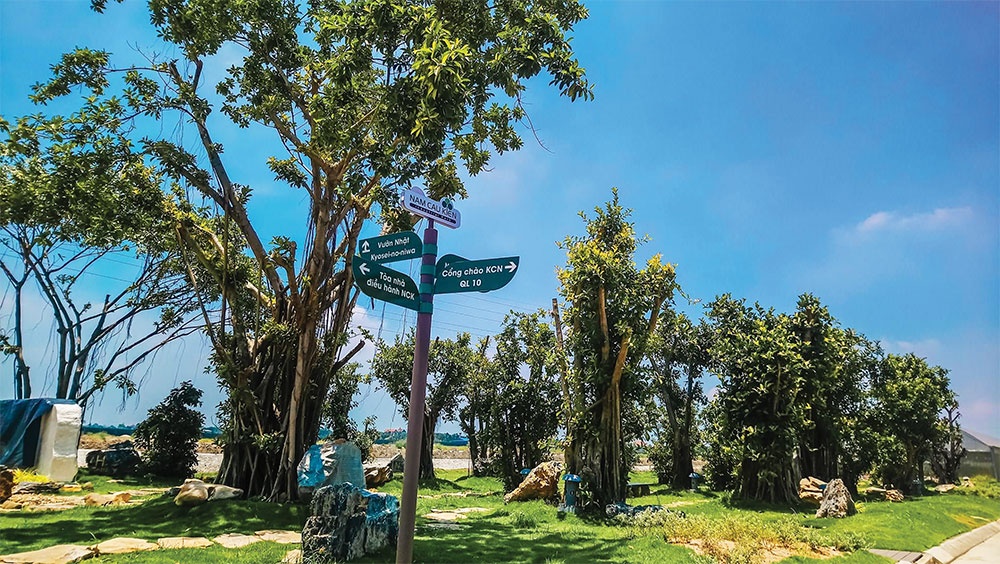 |
| A section of Nam Cau Kien IZ in Haiphong |
Possibilities and tendencies
There have been facilities administered and controlled by experienced international professional units, according to experts from CBRE Vietnam, but the number is still minimal. It is not feasible to certify that domestic management and operation units that have been in existence for a decade are truly professional, they noted.
In recent years, the demand for renting property in Vietnam to establish industries and warehouses has skyrocketed. New investors entering into IZs and inexperienced real estate agents often opt to collaborate with expert management units to guarantee the effective running of them, therefore increasing their appeal to enterprises, industries, and investors.
According to one CBRE specialist, despite the problematic progression of the pandemic, the real estate market for IZs in Vietnam continues to expand significantly, spurred by the trend of transferring the global supply chain away from China. The demand for new investments as well as the expansion of factories and warehouses is on the rise, resulting in a growth in the need for industrial real estate development.
“This reality creates more potential for enterprises in the spheres of management and operations, but it also increases the need to comprehend the market, clients, and IZs of management and service providers,” the specialist said.
The administration and operation is evidently a lucrative market niche. The question is why this section has received so little attention. According to Bui of Cushman & Wakefield, the local management boards of IZs give excellent assistance to investors throughout the operation process, in part because those that have been founded and put into operation are still working well.
“In the meantime, the return on investment for this increased market share is insufficient for enterprises to participate,” Bui said.
This was also cited by Nguyen Anh Minh, deputy general director and finance director of Shinec JSC, in addition to the fact that the legal basis for the administration and operation of IZs has not been finalised.
“Specifically, for housing and hotel projects, investors simply need to finish and then employ an operation management unit; however, for IZs, several additional issues must be addressed, such as environmental protection and fire prevention,” Minh said.
In other words, resolving legal concerns in the administration and operation is complicated. For example, the management unit is responsible for collecting operational fees for housing and hotel projects, while the investor is responsible for IZs.
“Managing and running such projects does not provide a significant profit, even though the same task is being performed. This is the primary reason why the IZ real estate market lacks competent management units,” Minh stressed.
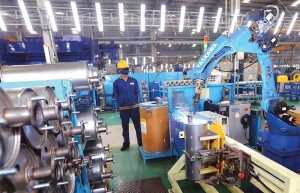 | Industry in need of strategic links With not everyone in Vietnam’s industrial landscape yet recovering from 2021’s troubles, many groups have no choice but to move from low-cost production to manufacturing higher-value products with the help of digital technology and foreign businesses. |
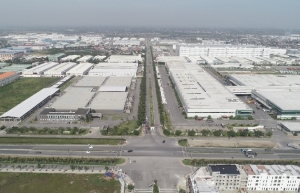 | Haiphong continues goal to boost business climate Thanks to its potential and favourable investment climate, the northern port city of Haiphong continues to attract both domestic and non-national financiers into its industrial and economic zones. |
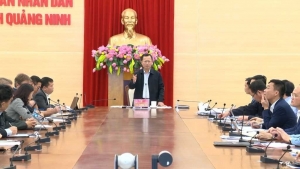 | Quang Ninh stable on foreign investor radar Quang Ninh province in Vietnam’s northeastern coast aims to bring 18 foreign investors to local industrial zones in 2023. |
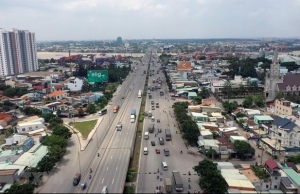 | Binh Duong: thousands of factories to be moved from residential areas About 2,900 businesses and factories in residential areas of the southern province of Binh Duong will be re-located into industrial zones and clusters in the locality from 2024-2030, according to a plan sketched out by the provincial People’s Committee. |
What the stars mean:
★ Poor ★ ★ Promising ★★★ Good ★★★★ Very good ★★★★★ Exceptional
Related Contents
Latest News
More News
- An Phat 5 Industrial Park targets ESG-driven investors in Hai Phong (January 26, 2026 | 08:30)
- Decree opens incentives for green urban development (January 24, 2026 | 11:18)
- Public investment is reshaping real estate’s role in Vietnam (January 21, 2026 | 10:04)
- Ho Chi Minh City seeks investor to revive Binh Quoi–Thanh Da project (January 19, 2026 | 11:58)
- Sun Group launches construction of Rach Chiec sports complex (January 16, 2026 | 16:17)
- CEO Group breaks ground on first industrial park in Haiphong Free Trade Zone (January 15, 2026 | 15:47)
- BRIGHTPARK Entertainment Complex opens in Ninh Binh (January 12, 2026 | 14:27)
- Ho Chi Minh City's industrial parks top $5.3 billion investment in 2025 (January 06, 2026 | 08:38)
- Why Vietnam must build a global strategy for its construction industry (December 31, 2025 | 18:57)
- Housing operations must be effective (December 29, 2025 | 10:00)

 Tag:
Tag:



















 Mobile Version
Mobile Version